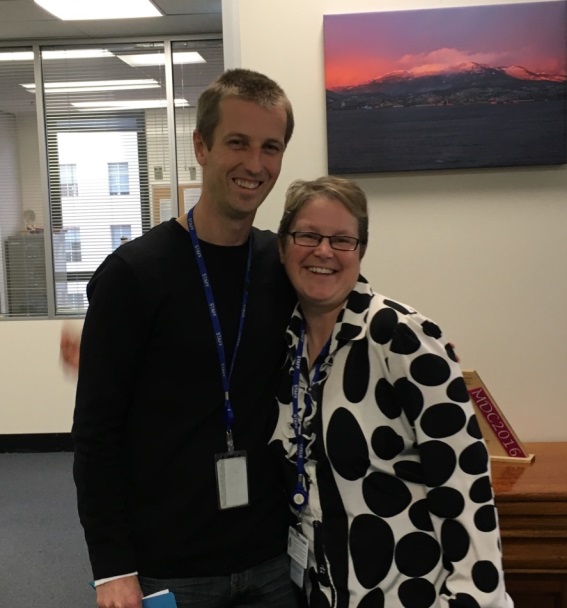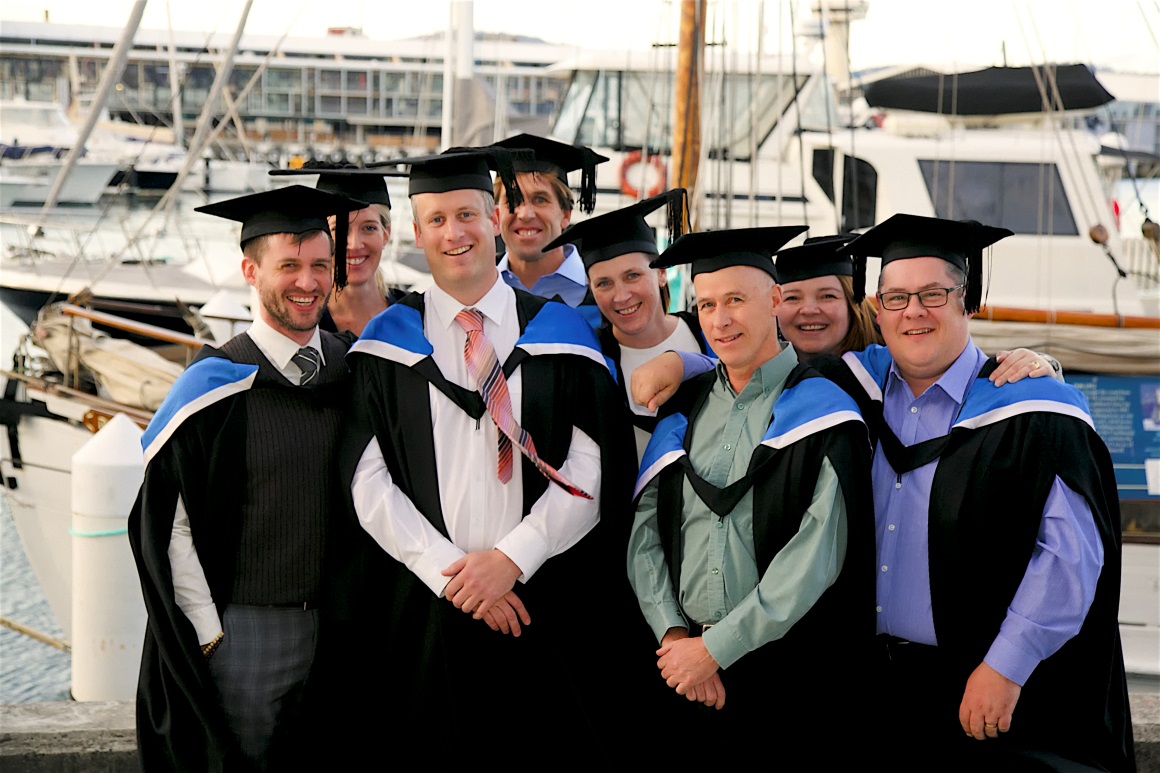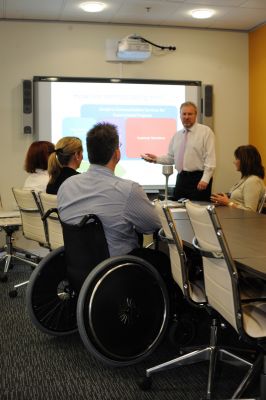
Divisions
- About the Tasmanian State Service
- Contact Us
- Aboriginal employment
- Culture of learning
- Diversity and inclusion
- Digital capability
- Employee surveys
- Employment arrangements
- Employment policy
- Managing performance
- Work health, safety and wellbeing
- Workforce planning and reporting
- Awards and Agreements
- Managing and leading change
- Senior Executives
- Managing Positions in the State Service (MPSS 2016)
- Legislation
- Coronavirus (COVID-19) Information for Staff
Contact Details
By phone
Find the number of a specific division or office to contact them directly or call Service Tasmania on 1300 135 513.
Our staff
Use the Tasmanian Government Directory to find staff contact details
Social media
Follow our social media accounts to keep up to date with specific programs and initiatives.
Chapter 5 - Supporting our leaders and managers
Building on the Senior Executive Leadership Capability Framework, and drawing on the Workforce Skills Audit of the Senior Executive Service undertaken in 2014-15, SSMO has been working with agencies to implement a number of the Audit’s recommendations and other activities related to the professional learning and development of the senior executive service (SES) and senior managers.
Building on the SES Workforce Skills Audit
Building on the findings of the SES Workforce Skills Audit undertaken in the previous reporting period, SSMO has been working with agencies to progress a number of initiatives, such as renegotiating the Member Service Agreement (2016-2020) with the Australian and New Zealand School of Government (ANZSOG) to align executive leadership development activities more closely with State Service objectives, as well as progress and deliver the bespoke SES Leadership Development Program. A high level Reference Group has been established to work with SSMO to deliver a program over four stages and it is anticipated that the first delivery of the full program will commence in 2017.
State Service Strategic Management Program
The State Service Strategic Management Program(S3MP) is a collaborative management and leadership development program coordinated by the Department of Police, Fire and Emergency Management (DPFEM), SSMO and the University of Tasmania. The intensive whole-of-service Program aims to increase management and leadership skills and capabilities of State Service employees and Police Officers ready for senior management roles. Participants can exit the program early with a Graduate Certificate (Public Sector Management Leadership) after completing two units, or be awarded a Professional Honours (Public Sector Management Leadership) or Research Honours (Public Sector Management Leadership) after completing four units.
In 2015-16, eleven State Service employees joined 14 Police Officers in the inaugural 2015 pilot program and in 2016, a cohort of 28 people, including 18 State Service employees, six Police Officers, three Department of Police, Fire and Emergency Management employees and one Police Officer from Victoria, commenced the intensive program.
Participating agencies have included Port Arthur Historic Site Management Authority, TasTAFE as well as central agencies such as the Department of Treasury and Finance.Whole-of-Service Manager Essentials Program
Highlights of the 2016 program so far…
“Sharing .. stories on contemporary 'wicked' problems’… and all the fantastic classmates and course coordinators.”
Kim Enkelaar, 2016 S3MP participant
“There are so many talented people across the state public sector doing some amazing work!”
Dave Hughes, 2016 S3MP participant

(Corporate and Governance) and
Dave Hughes (Service Tasmania).
Whole-of-service Manager Essentials Program
In 2015-16 SSMO has been working with a group of senior officers from interested agencies to form a whole-of-government Manager Development Program Working Group up to develop a high quality, contemporary manager development program for State Service managers. Phase 1 of the initiative has been completed and supported by Heads of Departments. The Working Group is currently progressing Phase2 – Design, Development and Delivery of a Manager Essentials Program It is anticipated that the first delivery of the full Program will commence in early 2017.
Change Management resources
Some agencies have undergone significant structural or service delivery changes in the reporting period. In 2015-16 SSMO worked with the University of Tasmania to progress a change management research project through a Post-Graduate Internship, and work has commenced to implement a number of the project’s recommendations, including the design and development a Change Management Toolkit. The toolkit will include information, factsheets and templates to guide managers and leaders when undertaking change. It is anticipated that the toolkit will be released in late 2016.
Public Sector Management Program
The Public Sector Management Program (PSMP) is a tertiary level qualification course, aimed to develop skills in middle to senior level managers from Commonwealth, state, territory and local government sectors across Australia. Successful participants achieve a Graduate Certificate in Business (Public Sector Management). TTC continued to support the delivery of PSMP in partnership with the Queensland University of Technology (QUT). TTC has supported this Program for over 13 years.
In 2015-16, 15 people from the 2014 cohort graduated from PSMP and were awarded the Graduate Certificate in Business (Public Sector Management).
In addition, TTC actively promoted participation in the 2016 Program, which resulted in 20 participants enrolling – a record number for the past five years. Agencies that supported the program this year included the Department of State Growth, the Department of Justice and the Department of Treasury and Finance.

Executive forums and Australian and New Zealand School of Government events
A number of whole-of-service events aimed at building the capability of managers and leaders were held in 2015-16. These included presentations delivered through the continued relationship between SSMO and the Australian and New Zealand School of Government (ANZSOG), as well as Senior Executive Forums.
Events held in 2015-16 included:
- ANZSOG Seminar (August 2015) - Leadership for a fractured world with Dr Dean Williams;
- ANZSOG Seminar (February 2016) - Securing (successful) reform: what role for public servants? with Professor Gary Banks AO;
- Senior Executive Forum (April 2016) - Addressing Domestic and family violence in Australia with Mrs Kathy O’Donoghue and Ms Cathie Kennedy; and
- Senior Executive Forum (July 2016) – Sharing Information within, between and beyond Government with David Watts, Donna Adams, Barry Sandison and Sara Kay.
TTC has also continued to provide senior leaders and managers with relevant courses, seminars and workshops to support their leadership development, including:
- ANZSOG Masterclasses & Leadership in Action Workshops;
- Diploma of Government (Policy);
- Performance Indicators for Government;
- Business Planning for Government;
- Critical Thinking and Problem Solving; and
- Women in Leadership.
Quick facts about the senior executive service (SES)
- There are 147 people in the SES.
- 35 % of the SES are women.
- 30 SES vacancies were advertised across ten agencies, and across all four SES levels.
- 281 applications were received for these vacancies.
- 20 of the 30 vacancies were filled in the reporting period.
Senior Assignments Employment Register
In 2015-16 the Employment Register for Senior Assignments (the Register) was established. The Register is a whole-of-service fixed-term employment register aimed at providing the State Service with a pool of applicants who can demonstrate capabilities at a senior level to support projects of up to six months duration. The duties offered may be on a flexible work arrangement varying from a few hours per week to full-time. The Register is particularly suited to former State Service senior managers and officers.
Other activities
At the agency-level, work continues to build the skills and knowledge required for developing and sustaining leadership capability now and into the future. Most agencies stated in their responses to the 2015-16 Agency Survey that their work on leadership was informed by the Senior Executive Leadership Capability Framework while all stated that their work on leadership was informed by their performance management approach and their organisation’s Business Planning and values.
A change to support contemporary selection practices was adopted in January 2016, when the State Service began trialing a new process for advertising and filling senior executive service vacancies. The advertisement now focuses on the opportunity a job provides and the ideal candidate. Candidates are asked to provide a one page summary showing why they are the best person for the job, rather than address detailed selection criteria. The formal evaluation of this new process will be completed shortly. However, anecdotal feedback from Heads of Agencies has indicated that there has been greater diversity in applicant pools and the response from candidates has been positive.
Agencies also reported using Higher Duties Allowances, More Responsible Duties Allowances and rotation and project opportunities to support the development of their leaders and managers. For example, the Department of Premier and Cabinet reported that it was building the capability of some of its leaders through projects such as leading the Family Violence Action Plan Project, while the Tasmanian Audit Office provided opportunities to a couple of their leaders through participating in the Australasian Council of Auditor-Generals and supporting staff to work on projects in Fiji with the Office’s Fijian equivalent.
In addition, agencies reported that their senior leaders and managers participated in other opportunities such as specific management development programs, delivered in-house, by external providers, or in partnership arrangements. For example, the Department of Education’s use of the Professional Learning Institute’s courses, the Department of Police, Fire and Emergency Management’s Executive Leadership Development Program and the Department of Health and Human Services’ Leadership and Management Development Program.
Agencies reported that leadership development activities are regularly reported to their Executive groups, and the majority of these activities are formally evaluated.
In their responses to the 2015-2016 Agency Survey, agencies reported the following priority development areas for their leaders in 2016-17:
- ethics and conflict of interest;
- change management;
- family violence; and
- management.

